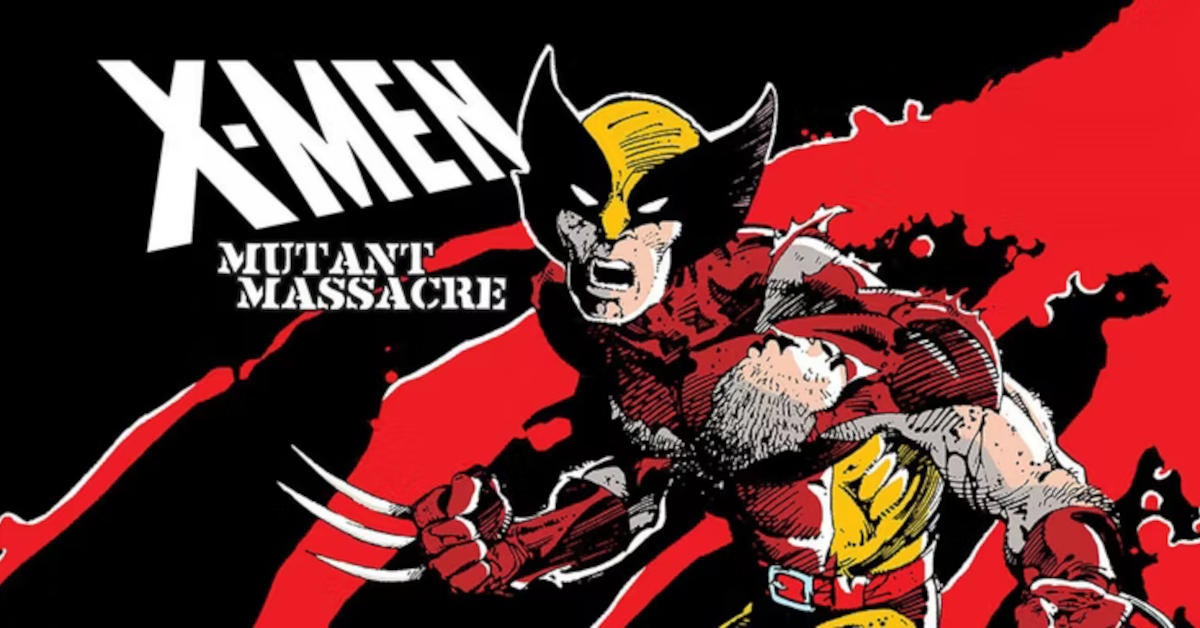X-Men: Did Marvel Really Need Another Mutant Massacre?
Marvel Dealt Yet Another Genocidal Blow to the X-Men and Mutants - But Did Hellfire Gala Go Too Far?
Marvel just dealt mutants another genocidal blow, as revealed in X-Men: Hellfire Gala (2023). SPOILERS FOLLOW: This year's gala thrown by the mutant nation of Krakoa was set to carry on the annual tradition of selecting and debuting the latest X-Men team roster; instead, the mutant-hating organization ORCHIS crashed the party, finally launching a strike they'd been planning since Krakoa started.
ORCHIS (and old X-Men AI foe, Nimrod) murdered most of the new X-Men team, and either maimed, crippled, or killed quite a few of the most powerful veterans. Professor X was captured and coerced into making nearly all mutants leave Earth – seemingly transporting them to their deaths. ORCHIS's latest has reset the X-Men's status quo to one where a desperate few are fighting to survive – but is it really the change fans needed at this point?
Marvel Loves A Mutant Massacre

The ORCHIS Mutant Massacre isn't the first time Marvel's mutants have faced near-extinction. Going back to the alternate future of "Days of Future Past," where Sentinels hunted down mutants to near-extinction, there have been stories both iconic (Mr. Sinister's Morlock Massacre – the first X-Men crossover event – or M-Day/House of M) and infamous (New X-Men's Genoshan Mutant Massacre) about just how dark times get for mutants, when humanity's (or other enemies') bloodlust surges.
Admittedly, mutant massacres have always been a questionable trope of the X-Men Universe, allowing creators an easy "out," for reducing mutants' presence in the franchise, and then bringing them back in an entirely new status quo. This time it arguably hits very differently, though. The Krakoa Era of X-Men has been one of the longest-lasting creative runs with the characters (four years), not to mention one of the most revolutionary and immersive.
The Krakoa Massacre Hits Different

With "House of X" and "Powers of X," writer Jonathan Hickman introduced an entirely new take on mutant culture, history, and how mutant powers were used. The Krakoa experiment (welcoming both "good" and "evil" mutants into the mutant nation) sparked intrigue as different factions built and schemed around Krakoa's Quiet Council government. The new world order that Hickman built into X-men inspired Marvel Comics creators to revise Hickman's original (shorter) timetable for a three-act plan for Krakoa's rise and fall; just building out the new X-Men Universe and all the characters and stories it touched kept Marvel busy for at least three years.
The point here is that there was clearly a lot of fun to be had with the Krakoa Era of X-Men, and even though the various comics and storylines were a hit-or-miss mix, the high points really resonated with fans – as did certain ideas, characters, and overarching story ideas that Hickman and co. put in place.
That's why a lot of Marvel fans are feeling like this Krakoa Mutant Massacre is something akin to a chess player simply swiping the game pieces off the board in the middle of an intricate game. Granted, the story is still unfolding, but it feels like Hellfire Gala (2023) really did signal the end of the Krakoa Era as we knew it, along with all the deeper and more challenging themes and stories of trying to create, maintain and protect all facets of a sovereign nation, in the midst of a superhero universe, all while trying to avoid and/or change numerous timelines leading to extinction.
The run-and-gun survival stories of the X-Men have their own proud legacies, and the upcoming "Fall of X" could turn out to be another one. But once again taking Earth's mutant population down, the X-Men franchise has lost one of the most intriguing story hooks it's had in years, and a whole lot of originality with it.
X-Men comics are on sale at Marvel.
0comments